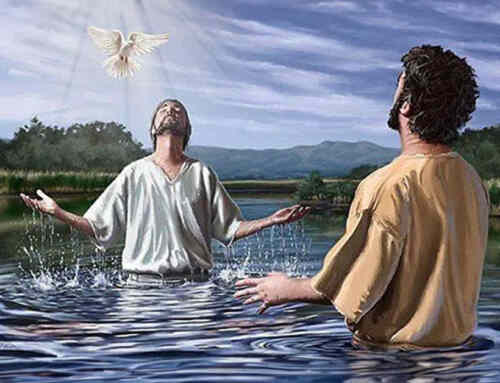Not only okay, but wise and supported by scripture.
John's baptism for the remission of sins was an invitation to consenting adults at the age of reason (Matthew 3). Jesus himself, the perfect son of God, was an adult when he presented himself in water baptism at the River Jordan (Mark 1). He declared (John 3:5) that “unless one is born of water and the Spirit, he cannot enter the kingdom of God”. It appears that decision making skills are required.
Baptism is the expression of obedience to Jesus' command in Matthew 28:19–20; a public symbol of faith in the ransom sacrifice of Jesus (Romans 10:10); an indication of repentance from sin and the dedication of one's life to serve God.
Baptism illustrates the death, burial and resurrection of Christ as well as the believer's profession of death to sin and new life in Christ (Romans 6:3). Being “buried with Christ in baptism we arise in faith” (Colossians 2:12). “And that water is like the baptism which now saves you—not the washing of dirt from the body, but the promise made to God from a good conscience. And this is because Jesus Christ was raised from the dead” (1 Peter 2:21).Again, the decision is made from a “good conscience” and requires maturity.
Scriptural descriptions of the act of baptism are based on belief and always accompanied by some mature action. The book of Acts provides specific references to the baptism of reasoning adults who believed and symbolized their devotion to God by baptism. In Acts 2:38, after Pentecost, Peter told the believers to “Change [their] hearts and lives and be baptized…in the name of Jesus Christ for the forgiveness of sins.” The Ethiopian eunuch acknowledged Jesus as his Savior, demonstrated a desire to understand the scriptures and was baptized (Acts 8).
The Apostle Paul was visited by the Lord, was baptized, and received a commission to spread the gospel (Acts 9:18). Cornelius evidenced his reverence for God and generosity and dedicated his life to God in baptism (Acts 10:47). In Acts 16, Lydia's heart was opened when she heard the message and she was baptized. The Philippian jailer wished to be “be saved” and was baptized when he saw the Lord's amazing power demonstrated in the prison.
One might argue that Old Testament servants like Samuel and Samson were dedicated to the Lord by their parents as children. There is no evidence that water baptism was used as a symbol to confirm the dedication. They could not be used in God's service until they were adults.
Galatians 3:26, 27 tells us – “For you are all sons of God through faith in Christ Jesus. For as many of you as were baptized into Christ, have put on Christ.” It seems clear that baptism is a willing pledge made by those who are old enough to recognize their sin, mature enough to comprehend the significance of the death of Christ, and independent enough to commit themselves to him.







